1994 Sportflics FanFest All-Stars #AS4 Ozzie Smith/Cal Ripken
| Grade |
NM/MINT |
| Book Value |
$ 25 |
| Our Price |
$ 15.95
Add to cart
|


Below are short bits & pieces on sportscard & baseball trading card collecting.
Please wander around the website for more info, prices, values & images
on vintage baseball, football, basketball, hockey, sport and non-sports cards.
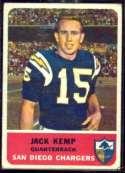
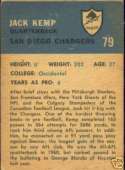
1962 Fleer Football
The 1962 Fleer Football set contained (88) cards.
The set's top rookies were:
Future Pro-Wrestler Ernie 'the Big Cat' Ladd
Future TV/Movie Star Fred 'The Hammer' Williamson.
Click for complete
1962 Fleer Football Checklist and Prices
Note: You may be on that page right now.
|

1960 Leaf Baseball Cards
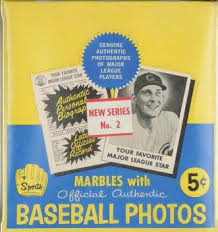
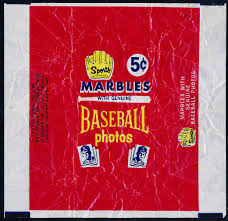
The 1960 Leaf baseball card set featured 144 regular-sized high-gloss
photo quality cards. Back then Topps had a monopoly on baseball cards
packaged with gum or candy so Leaf packaged their cards with marbles.
The marbles were from Sports Novelties Inc. and the cards, called
1960 Leaf, bear copyrights by Sports Novelties Inc.
Hall of Famers Luis Aparicio, Orlando Cepeda and Jim Bunning were the
top stars in the set. The set came in two series, with the second
series high numbers (#73-#144) produced in very limited quantities.
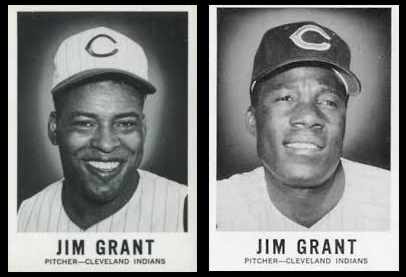
Scarcest card in the set is the corrected version of Jim
'Mudcat' Grant (#25). The more common error variation pictured
Brooks Lawrence on the front with Jim Grant's info on back.
To promote this set, Leaf also produced (8) very scarce Big-Head
PROOF variations.
There were also (3) different variations of the back of Hal Smith's
card #58. Leaf also produced (8) very scarce and extremely expensive,
Big-Head PROOF variations to promote their set.
Click for complete
1960 Leaf Baseball Cards
Note: You may be on that page right now.
|


1968 Topps Action All-Star Stickers
Checklist & Values
1968 was an awesome year for Topps test & oddball issues with
Game cards, Player Posters, 3-D cards, Plaks, Discs, Punchouts
and these "Baseball Action Stickers" also called "Action All-Stars
Stickers".
"Baseball Action Stickers" were STAR-PACKED 3-panel sticker strips,
some with facsimile autographs. There were (16) different strips in the
set but only 12 are totally different. #13 thru #16 re-used panels from
#1 thru #12.
Strips were perforated, folded at joints and put in packs.
 Boxes had 12 packs (10 cents each) with 1 sticker per pack. Sets could be
made back then for $1.60. Today, the Mantle panel goes for around $2,000.
Boxes had 12 packs (10 cents each) with 1 sticker per pack. Sets could be
made back then for $1.60. Today, the Mantle panel goes for around $2,000.
Collectors often collect just individual panels as complete strips are
so scarce, fragile & EXPENSIVE.
Single panels themselves are quite scarce - in 20+ years PSA has graded
just over 200 TOTAL compared to over 1,000 1952 Mantles !!!
PROOF sheet below is missing the facsimile autographs.

Another interesting issue:
1960 Pirates Tag-Ons Baseball Stickers
|

Tobacco Cards
Starting approximately in 1886, sportscards, mostly baseball cards, were often
included with tobacco products, for promotional purposes and also because the
card reinforced the packaging and protected cigarettes from damage. These sports
cards are referred to as tobacco cards in the baseball card hobby. Over the next
few years many different companies produced baseball cards. Tobacco cards soon
started to disappear as the American Tobacco Company tried to develop a monopoly
by buying out other companies.
They were reintroduced in the 1900s, as American Tobacco came under pressure from
antitrust action and Turkish competition. The most famous and most expensive,
baseball card is the rare T206 Honus Wagner. The card exists in very limited
quantities compared to others of its type because Wagner forced the card to be
removed from printing. It is widely (and incorrectly) believed that Wagner did
so because he refused to promote tobacco, but the true explanation lies in a
dispute over compensation.
Soon other companies also began producing baseball and football cards. Sports magazines
such as The Sporting News were early entries to the market. Candy manufacturers
soon joined the fray and reflected a shift toward a younger target audience for cards.
Caramel companies were particularly active and baseball cards were one of the first
prizes to be included in Cracker Jacks. World War I soon suppressed baseball card
production.









 The 1960 Leaf baseball card set featured 144 regular-sized high-gloss
photo quality cards. Back then Topps had a monopoly on baseball cards
packaged with gum or candy so Leaf packaged their cards with marbles.
The marbles were from Sports Novelties Inc. and the cards, called
1960 Leaf, bear copyrights by Sports Novelties Inc.
The 1960 Leaf baseball card set featured 144 regular-sized high-gloss
photo quality cards. Back then Topps had a monopoly on baseball cards
packaged with gum or candy so Leaf packaged their cards with marbles.
The marbles were from Sports Novelties Inc. and the cards, called
1960 Leaf, bear copyrights by Sports Novelties Inc. 
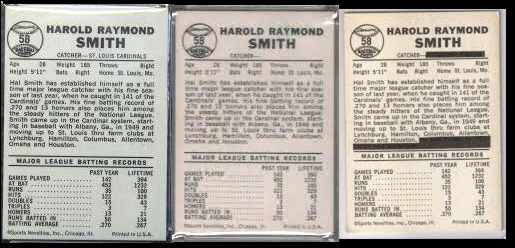
 Boxes had 12 packs (10 cents each) with 1 sticker per pack. Sets could be
made back then for $1.60. Today, the Mantle panel goes for around $2,000.
Boxes had 12 packs (10 cents each) with 1 sticker per pack. Sets could be
made back then for $1.60. Today, the Mantle panel goes for around $2,000. 
